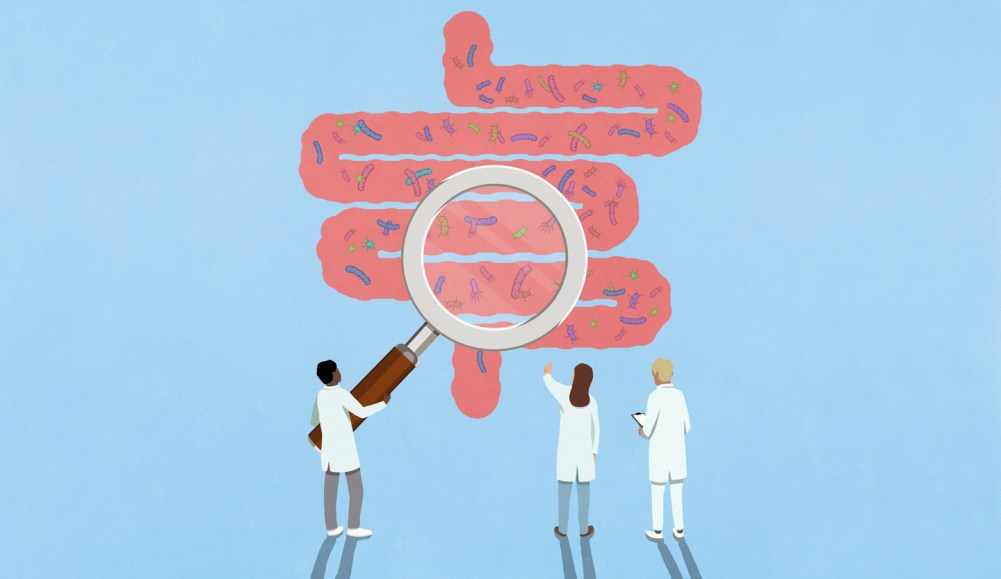Simulations of your gut may predict which probiotics will stick
Tests of “digital gut” simulations hint at personalized probiotics but not a cure‑all yet

What counts as “good” bacteria depends on the individual and the environment.
Malte Mueller/Getty Images
Figuring out which bacteria or other nutrients your gut needs may one day be as simple as running detailed computer simulations.
From pills to yogurts to sodas, probiotics are being repackaged and marketed to us more and more, with the promise of boosting our “gut health.” But while commercially available probiotics work for some people, this one-size-fits-all approach hasn’t reliably benefited consumers. Instead, new simulations can predict whether a specific bacterial strain will successfully take up residence in a person’s gut, researchers report February 19 in PLOS Biology.
The simulations, called microbial community–scale metabolic models, are built on what scientists already know about how gut bacteria eat and use food. They allow researchers to simulate what would happen if a strain of bacteria were inserted into an individual’s gut, “and see whether or not it can grow, [and] what it does if it does grow,” says Sean Gibbons, a microbiome researcher at the Institute for Systems Biology in Seattle. “We thought that this type of modeling platform could potentially allow us to identify personalized responses and maybe even design personalized interventions.”
Gibbons and his colleagues used existing data from two intervention studies to test a new microbial community–scale metabolic model. The first tested the benefit of a synbiotic — a mix of probiotics, which are live gut bacteria, and prebiotic fiber, which triggers bacteria growth — for patients with type 2 diabetes. The second model tested a pharmaceutical‑grade live biotherapeutic in patients with recurrent Clostridioides difficile infections. In both datasets, the added bacterial strains showed promising health outcomes for some individuals and not others, so Gibbons and his team wanted to see if they could use the models to understand why.
The team used patients’ baseline gut microbiome profiles before the intervention and predicted with 75 to 80 percent accuracy which bacteria would stick, or engraft. The model also accurately predicted many of the boosts in the production of short-chain fatty acids thought to support a healthy gut.
“I was actually surprised that the engraftment could be predicted so accurately in such a complex context,” says Christoph Kaleta, a systems biologist at Kiel University in Germany, who was not involved in the study. However, Kaleta notes that the study looked only at short-term changes. “While probiotics often show a short-term presence of the provided species, long-term engraftment is only seldom observed.… Ideally, you would like those probiotic species to maintain their beneficial effect for longer.”
Gibbons and his team also looked at the health outcomes of specific bacteria’s growth. They found that higher growth rates of Akkermansia muciniphila were linked with better blood sugar control after a meal.
To validate their model in a cohort of healthy people, the team also used data from people who had shifted to high-fiber diets. Even in these individuals, the model accurately predicted how their guts would respond to their new diet. The study offers a proof-of-concept for a future where your doctor might “test drive” a probiotic in a digital model of your gut before you ever take a single pill.
“If we can take one person’s model and simulate thousands of interventions in the matter of minutes or hours, then suddenly you have a kind of ‘digital twin’ that can start to approximate people’s individualized responses,” Gibbons says. Before that, he and his team plan to run a prospective clinical trial to see if a fancy, individualized intervention would work any better than a generic one.
The study highlights that what counts as “good” bacteria depends on the individual and the environment. “A lot of these bacteria are beneficial only in certain contexts,” says Nick Quinn-Bohmann, a microbiome researcher also at the Institute for Systems. “It doesn’t make sense to have a suite of one-size-fits-all probiotics for everyone.”
Quinn‑Bohmann says similar models could eventually help design custom microbiome therapies, not just pick from off‑the‑shelf pills.







